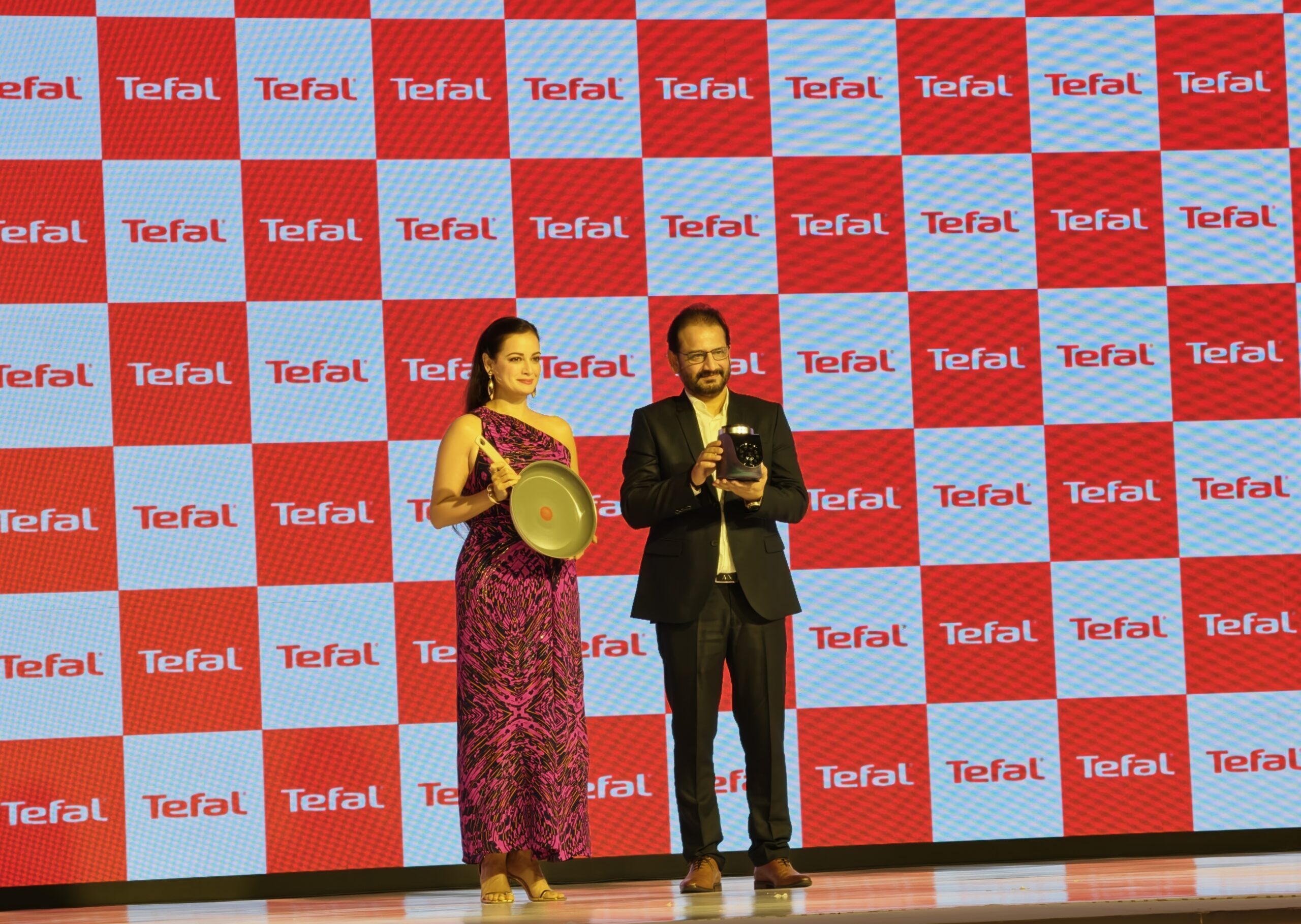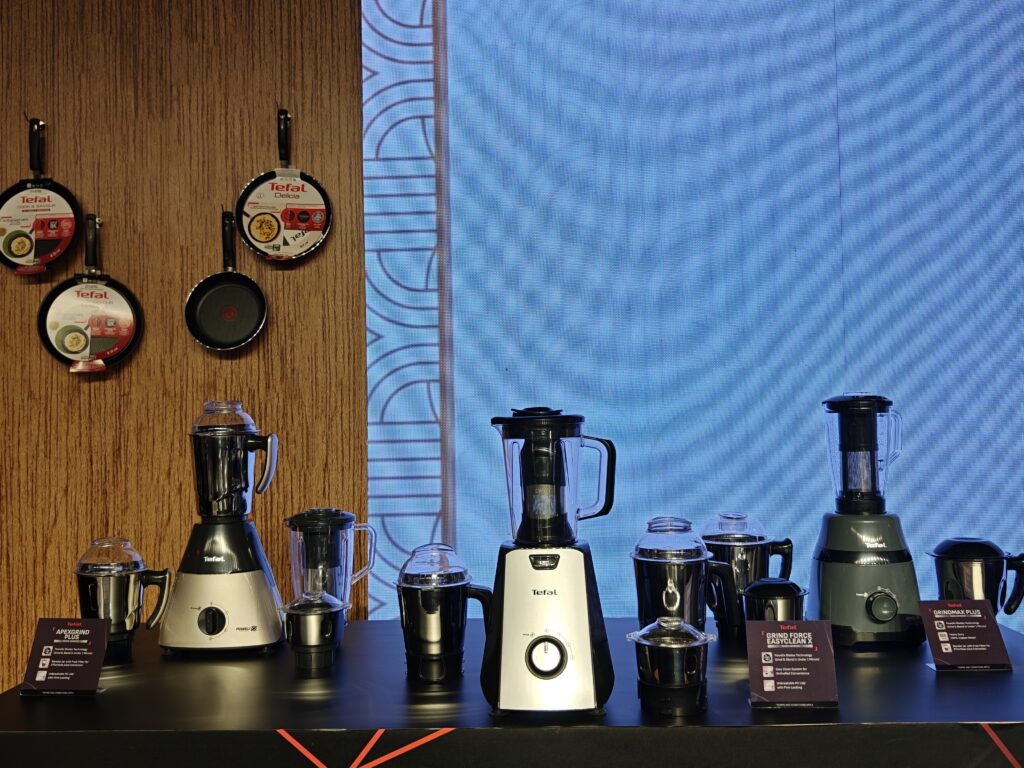
When design meets durability, and tradition meets tech
In India, the kitchen is more than a cooking space — it’s where family recipes meet everyday rhythm. Indian kitchens are quietly transforming. No longer just functional zones tucked away in the back. They’re becoming the heart of modern homes — blending open layouts, clean aesthetics, and increasingly, smart appliances. Tefal’s latest collection makes a strong case for why the kitchen deserves a tech upgrade.
But this isn’t about futuristic fridges or gimmicky gadgets. It’s about products that work smarter, last longer, and blend into the evolving design language of Indian homes.
At the center of it all? Tefal’s commitment to tech-driven simplicity — plus a little star power.
Smart cooking, local thinking
Tefal, a global leader in cookware and small appliances, pulled the curtains on its 2025–26 range. “Tefal Première” showcase wasn’t just a product drop; it was a statement.
Their latest collection includes dual-basket air fryers and mixer grinders with built-in safety intelligence. The ceramic cookware signals when it’s hot — literally. Think of it as the kitchen, reimagined for the multitasking, design-loving, health-conscious Indian home.
What’s refreshing is that these aren’t just imports with a local sticker slapped on. Over ten of these products were fully developed and manufactured in India. They’ve been tested with 300+ Indian recipes and adapted for daily wear — right down to metal-spatula-friendly surfaces.
Where beauty meets function
The product lineup feels well thought out — especially for homes juggling tradition with modern living. Their new Revive ceramic cookware, for instance, is designed to withstand everyday chaos and still look sleek on the shelf. The titanium-coated Flavor Force pans? They’re as durable as they sound and packed with Tefal’s patented Thermo-signal tech.
Meanwhile, the X-Force cordless vacuum and garment steamers are built for the space-crunched apartments in urban India.

Each of these launches speaks to a simple idea: appliances shouldn’t just perform, they should adapt to homes, habits, and aesthetics.
Dia Mirza and the vibe of conscious living
Actor and UN Environment Goodwill Ambassador Dia Mirza joined the Delhi event to unveil the range. Her presence wasn’t token. She represents the lifestyle Tefal is tapping into — conscious, aware, and quietly tech-forward.
Speaking at the event, she summed it up: “It’s not just about convenience; it’s about trust, safety, and wellness.” That blend of mindfulness and practicality could become the emotional hook Tefal leans on as it deepens its India push.
Honestly, with Dia’s presence, it’s hard not to imagine a brand campaign that says “Rehna hai tere ghar mein” — a subtle nod to both longevity and belonging.
Tech that doesn’t shout
One of the most interesting things about this launch is how understated the tech is. It’s not flashy. It’s helpful. Ashish Kakkar, CEO, Groupe SEB India, shared, how Tefal is commited to transforming everyday living through thoughtful design, latest technology, and user-focused innovation.
From pressure cooker with Indian presets to the blender with eight auto programs, to the vacuum that bends so you don’t have to, each product feels like it was made to solve small daily frictions. There’s no over-design, no overkill. Just thoughtful execution.
It’s this balance of quiet innovation and everyday relevance that could give Tefal an edge in a crowded, and often noisy, appliances market.
Is AI the road ahead?
Tefal’s approach — blending intuitive design with real-world cooking needs — hints at what’s next for Indian homes. As voice assistants, smart sensors, and predictive tech enter everyday appliances, the future of kitchens is leaning toward full automation.
How long before your blender knows your breakfast routine? Or your pressure cooker talks to your grocery app? Maybe not far.
Many global brands are already piloting AI-led appliances that learn from usage patterns — adjusting cook times, suggesting recipes, even managing power consumption. In India, where kitchens vary by region, climate, and culture, the potential is massive — and brands like Tefal, which have already started building hyper-local innovation, are well placed to lead that change.
As AI becomes a household assistant, not just a cloud-based algorithm, we can expect the Indian kitchens to move from smart to truly intelligent.
